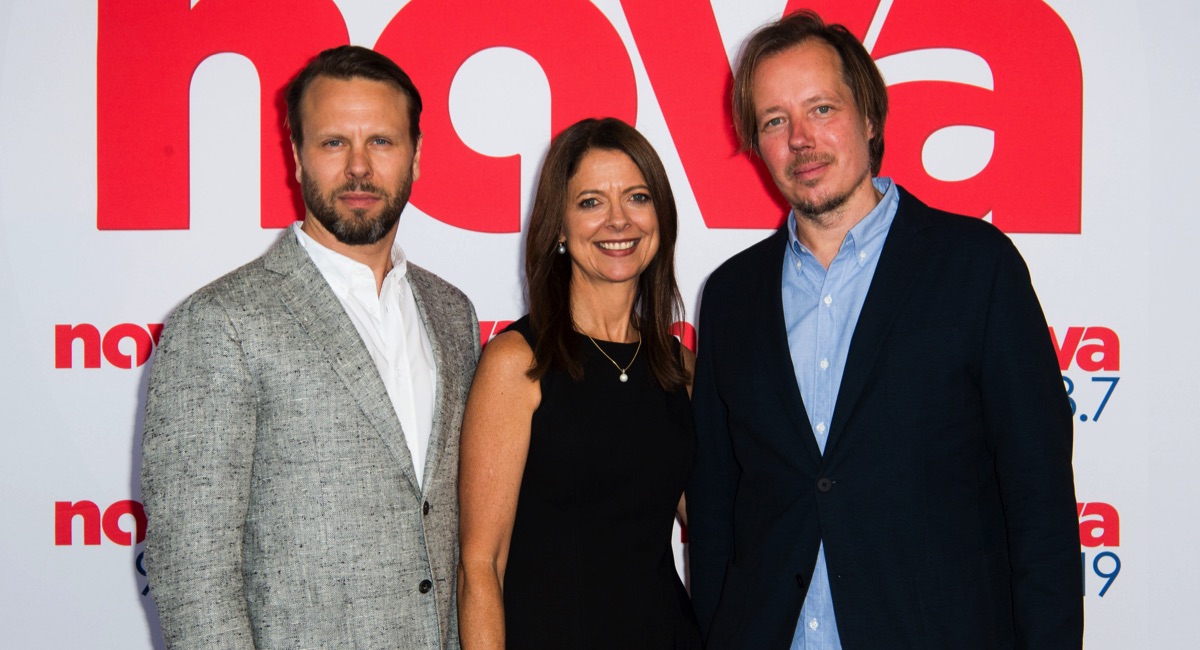Nova Entertainment’s partner in the podcasting space, Acast, has been rigorously attempting to solidify its presence and foothold in Australia this year.
Nova announced its partnership with the Swedish technology company in February 2017. Since then the chief content officer of Acast, Adam Martin, has been down under more than five times. Mediaweek caught up with Martin in Sydney along with the new country manager for Acast Australia Henrik Isaksson and local content director Guy Scott–Wilson. Isaksson has been in the role for about two months. Scott-Wilson had been with Acast for just under a month at the time he spoke to Mediaweek.
Although it was a rainy morning, Martin said he was “jealous” of Isaksson and Scott-Wilson for being able to work out of Sydney. Australia is currently at a “tipping point”, Martin said, where creators and brands are just waking up to the benefits of making content that can work locally and internationally. “That’s what I want to bring to Australia – being a global business.”
The move to expand into Australia was a natural progression for Acast, Martin said. “We had seen for a long time that Australia was our fourth largest market after our local markets, which are Sweden, US and UK.”
Acast currently gets about 3.6 million listens coming from Australia per month.

Nova Entertainment CEO Cathy O’Connor with Acast founders Karl Rosander and Mans Ulvestam
One of the first things that Isaksson noticed upon taking up his current job was that “there is a big appetite for podcasts within brands and agencies”. He says this is an advantage and a challenge that he looks forward to tackling. “Acast is not a production business. We are a tech business, so inherently that is what we should be doing. Meanwhile, Nova will look after the curation and production,” he stated said.
Asked if there is any temptation to get into production, Martin said, “No. A lot of competitors in the States are doing everything: distribution, hosting, monetisation and production. But we believe that we want to create a suite of tools to empower creators to create the best shows they can. We are not about telling them what they should be producing.
“We are about data-driven content creation. I am not going to tell you what kind of show you should make. But I am going to give you the insight to let you know how your show is being consumed so that you can make a better experience for the listener.”
The advantage that Acast holds over its competitors in Australia like Whooshka and Planet Broadcasting is that it is an international business that has been successful in highly competitive markets like the UK and US. “We don’t have to make the same mistake twice,” Isaksson said. Australia is also a competitive market, he acknowledged. But the “audio-on-demand market in Australia is big enough to sustain more than one player.”
Martin added: “If you haven’t got competitors in a market, then you are probably in the wrong business.”
A typical podcast listener
Podcast is the latest buzzword in the media sector. Everyone seems to have one or is considering starting one.
Martin agreed and described the characteristics of a typical podcast consumer: “They are hungry for knowledge and self-learning. That’s not necessarily the mass population in any country. It’s the people who are the early adopters and seek out the content that expands their own viewpoint on the world.
“Interestingly, this market is hard to hit for advertisers. This is why podcast is a very compelling medium from a brand and advertiser perspective, as well as a listener perspective.”
Rethinking podcasting
“The word podcasting carries so much baggage with it,” Martin said. “Historically, you think of something that has two men talking around a microphone and it’s something that is 45 minutes long. It is not that any more. We need to unshackle ourselves from that mindset.”
There is no magic time about how long a podcast should be. That is subjective to every podcast series. Acast provides creators with the data to inform them about the listener drop-off rate and at what point it drops off. This enables creators to make informed decisions about how they could be tweaking their podcast to ensure a better success rate.
There is plenty of scope for short podcasts in the global market, Martin said. “There is a lot of room in the market for the five-minute or even the three-minute pieces of audio.”
Acast unearthing Australian talent
A key part of Scott-Wilson’s job is to discover and sign new podcast series on Acast in Australia. “I am hugely excited about this role and to work with people who are so passionate about what they do,” he said.
Scott-Wilson will be working closely with Isaksson to do this. Isaksson said: “We are seeing a massive lack of female-focused and -driven podcasts. There are businesses, like Mamamia, which make amazing content. But as the country manager of Acast in Australia, I would like to see more females getting into podcasting.”
Scott-Wilson added: “Women’s lifestyle content is one of the cultural pillars where Australia leads the world. Other markets look to Australia for wellness, health and fitness, and mindfulness. So we want to be out there talking to female creators and taking their content that has been produced in Australia to the global stage.”
